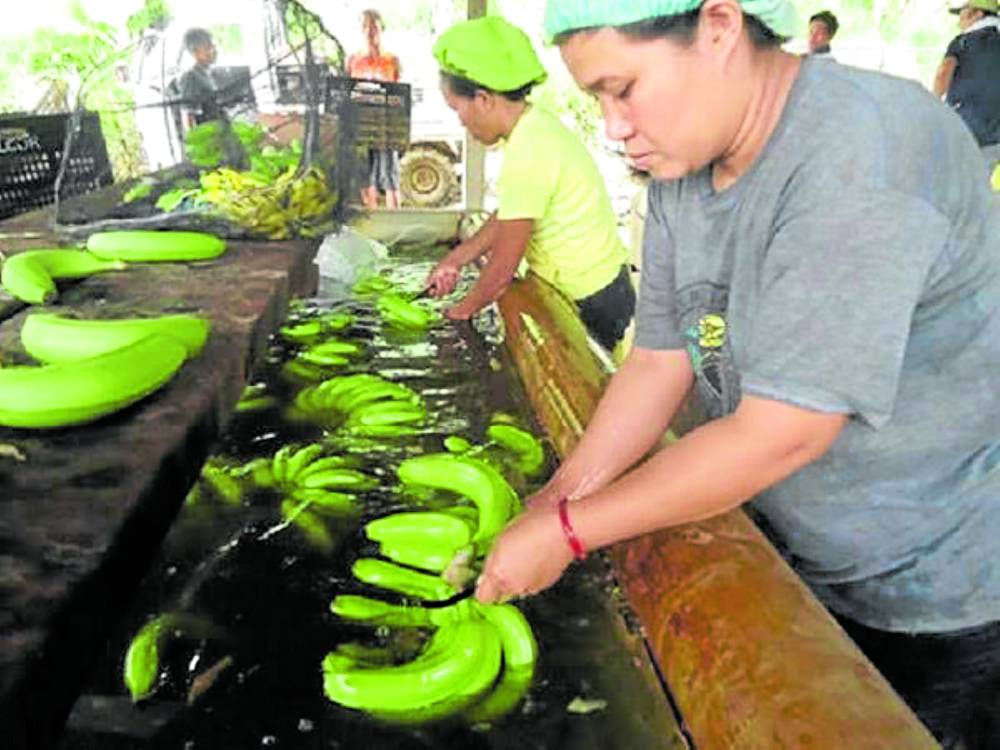
Trade officials will lobby for Japan to end its practice of imposing seasonal tariffs imposed on Philippine banana and pineapple exports, as part of the PJEPA review. —CONTRIBUTED PHOTO
The Philippines is planning to negotiate with Japan to get rid of seasonal tariffs on banana and pineapple exports during the next round of talks under the more-than-a-decade-old free trade agreement with the East Asian country.
Senior Trade Representative Dita Angara-Mathay told reporters recently that they plan to bring this up in the next meeting that will revisit the Philippines-Japan Economic Partnership Agreement (PJEPA) which entered into force in 2008.
“We’re trying to remove the seasonal tariffs of our banana exports to Japan because right now, we’re losing market share because of the entry of, let’s say, Ecuador bananas, et cetera,” she told reporters recently.
“We want it to be zero. Let us not put seasonal tariffs anymore because even Mexico and Peru have zero rates. So, we want us to have the same,” Angara-Mathay added.
In-season levies
Currently, Japan slaps higher duties on these Philippine agricultural exports during the months they are “in season” in Japan. Lower tariffs, meanwhile, are imposed during lean months.
The Philippine trade representative said they are still trying to schedule the next review and that no definite date has been set for the general review of the PJEPA.
The PJEPA, formerly known as the Japan–Philippines Economic Partnership Agreement, is the first ever bilateral free trade agreement signed by the Philippines.
Trade deal
It covers trade in both goods and services with both parties having agreed to review the trade agreement in 2011 and every five years after that, unless both countries agreed to change the schedule.
Earlier this month, from Feb. 8 to 12, President Marcos visited Japan for an official visit to court investors and improve trade relations between the two countries.
The Philippine trade delegation was able to secure at least 33 investment pledges, with 21 of those seen materializing within the next three years.
Japan is the leading country when it comes to investing in the Philippines’ economic zones, with firms from the East Asian country accounting for 27.42 percent of the ecozones’ total revenues amounting to P745.637 billion.